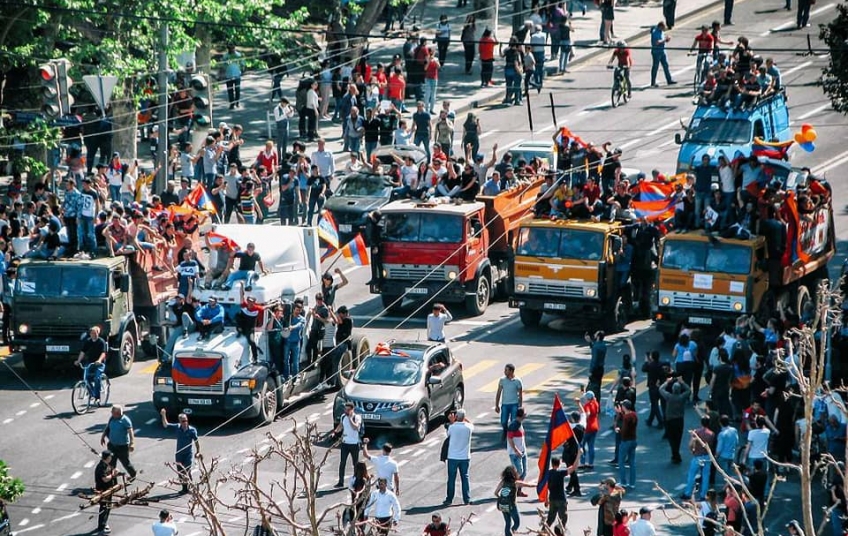The International Coverage of Armenian Protests
CNN describing the events in Armenia reports, that “Armenia was thrown into political turmoil on Tuesday after the ruling party blocked a bid by the leader of the country's burgeoning protest movement to become prime minister.
Nikol Pashinyan, 42, the sole candidate in the parliamentary vote, called for a nationwide day of protest on Wednesday after losing the vote.
Mass demonstrations led by Pashinyan's movement forced the resignation of veteran leader Serzh Sargsyan last week. But Pashinyan's bid to lead the country was thwarted by the Republican party in parliament, which holds a majority in parliament and, after hours of bad-tempered debate, refused to back him.
Shortly after the vote, Pashinyan told thousands of supporters at a rally in the capital Yerevan that their struggle was far from over, and called for a strike the next day.”
As BBC reports, heading to Nikol Pashinyan’s call, protesters brought the entire country to a standstill by blocking the roads and government buildings.
On Wednesday, Armenian protest leader Nikol Pashinian has called for a pause in the massive three-week-long demonstrations after the ruling Republican Party (HHK) indicated that it might support him for prime minister in a May 8 parliamentary vote.
David Ignatius in his op-ed for the Washington Post wrote, that “Armenia appears at last to be breaking with its post-Soviet malaise and embracing democratic change, thanks to a grass-roots movement that has found a way, for now, to straddle Russia and the West.” Ignatius further continues, that “Armenia’s basic political dilemma over the past 25 years has been how to reconcile its pro-Western political sympathies with its military dependence on Russia. This impasse helped foster a circle of pro-Moscow oligarchs around Sargsyan, who siphoned much of the country’s wealth. For all the entrepreneurial spirit of its people, a corrupt and authoritarian Armenia never achieved the capitalist takeoff of some other former Soviet republics and Warsaw Pact countries following the Soviet Union’s demise in 1991.”
The author concludes: “Pashinyan broke through the post-Soviet morass for several reasons, his reform movement colleagues argue. First, his movement has been nonviolent and broadly based, from young people to grandmothers; “Arms up,” symbolizing civil disobedience, became a slogan of the protesters who joined Pashinyan’s march on Yerevan last month that culminated in Sargsyan’s resignation. Second, Pashinyan avoided taking sides between Russia and the West. He has walked a narrow line in what one reform leader told me was an “Armenia-centric” approach. He has reassured Moscow by saying that he doesn’t intend to withdraw from military and trade pacts with Russia if he becomes prime minister. At the same time, his pro-democracy movement has roused sympathy in Europe and the United States, offering the prospect of wider friendships for the small, embattled nation.”
Prepared by Marina Muradyan





